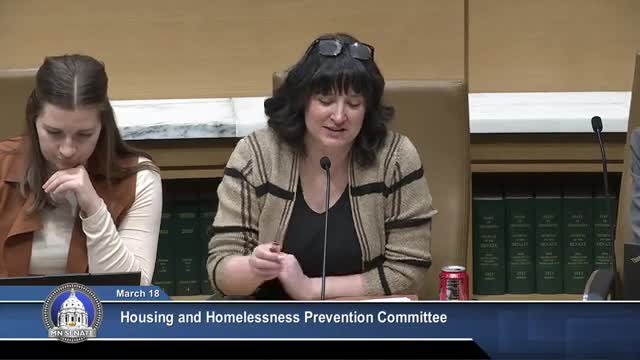Minnesota Senate Committee on Housing and Homelessness Prevention Moves Forward with Targeted Homeownership Program
The Minnesota Senate Committee on Housing and Homelessness Prevention recently recommended passage of a significant piece of legislation, Senate File 2423, as amended. This bill seeks to create an African American Workforce and Affordable Homeownership Development Program designed to provide targeted grants for cities, tribal governments, nonprofits, cooperatives, and community land trusts. The initiative’s core focus is to develop both single-family and multifamily affordable homeownership projects aimed specifically at African American workers.
Addressing Disparities in Homeownership
Senator Champion, the bill’s author, highlighted that this legislative effort arose in response to alarming disparities identified by the Minnesota Council for Minnesotans of African Heritage. Black Minnesotans experience notably lower homeownership rates compared to their white counterparts, alongside a heightened burden when it comes to housing costs. “This program is similar to the existing workforce and affordable homeownership development program,” stated Senator Champion. However, he emphasized that “there are significant differences, including that this bill focuses grant funding on projects that create or expand homeownership for African Americans in the workforce.”
Support from Community Leaders
The bill also garnered strong support from community leaders during committee testimony. Naida Presley, the president-elect of the Saint Paul NAACP and an experienced affordable homeownership developer, advocated for the bill, stressing that targeted investments could significantly expand homeownership opportunities. Presley noted that this legislation could not only help build construction capacity within communities but also foster generational wealth. “Investing in Black workforce development is another opportunity, and it’s a return on the investment,” she remarked.
Reverend Alfred Babington Johnson, the convener of His Works United, echoed these sentiments, articulating how the proposed measure would deliver focused investment strategies aimed at achieving affordable homeownership for African American residents in Minnesota. He described the disparities in homeownership as a longstanding issue that needs urgent attention.
Community member Carl Crawford also provided compelling testimony, emphasizing that homeownership acts as “the gateway to generational wealth.” His remarks highlighted the critical importance of affordable housing in creating lasting financial stability for families.
Legal and Equity Considerations
As the committee deliberated, several members raised questions about legal and equity implications. Senator Lucero queried whether the focus on African American populations might conflict with the Minnesota Human Rights Statute, which assures freedom from housing discrimination. In response, Senator Champion clarified that while the bill targets support for African Americans, it does not exclude other groups from applying for or receiving assistance. This reassurance aimed to alleviate concerns about potential discrimination while still addressing the specific needs of the African American community.
Legislative Progress
The committee adopted an A1 author’s amendment, moved by Senator Bolden, reflecting further refinements to the bill’s provisions. Following this amendment, Senator Mohammed moved to recommend that the bill, as amended, be passed and referred to the Committee on Jobs and Economic Development. This motion easily prevailed by voice vote, allowing the bill to advance in the legislative process.
Financial Future of the Program
It’s important to note that the bill as presented included a blank appropriation section. Senator Champion indicated that discussions about funding targets would occur in later stages if the bill continues to progress through the legislative process. This vital step underscores the financial support needed to implement such a targeted and impactful homeownership program effectively.
In summary, Senate File 2423 aims to address critical disparities in homeownership for African Americans in Minnesota. By directing resources toward targeted community initiatives, the bill aspires to create a pathway to affordable homeownership, fostering not only stability but also opportunities for wealth generation within the African American workforce.



